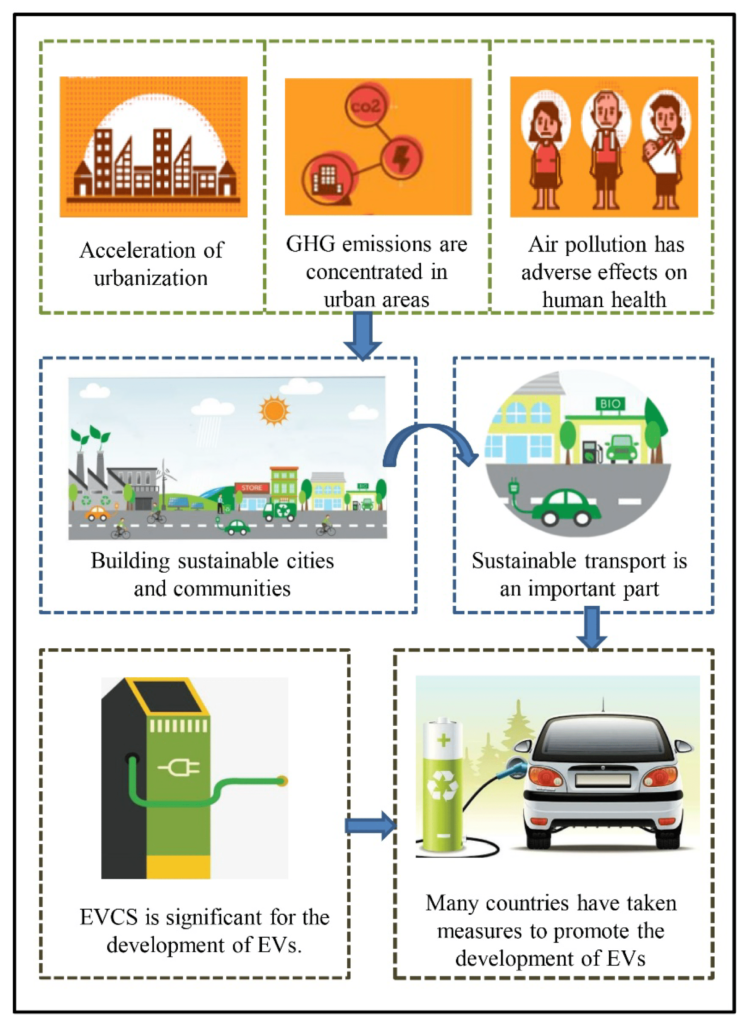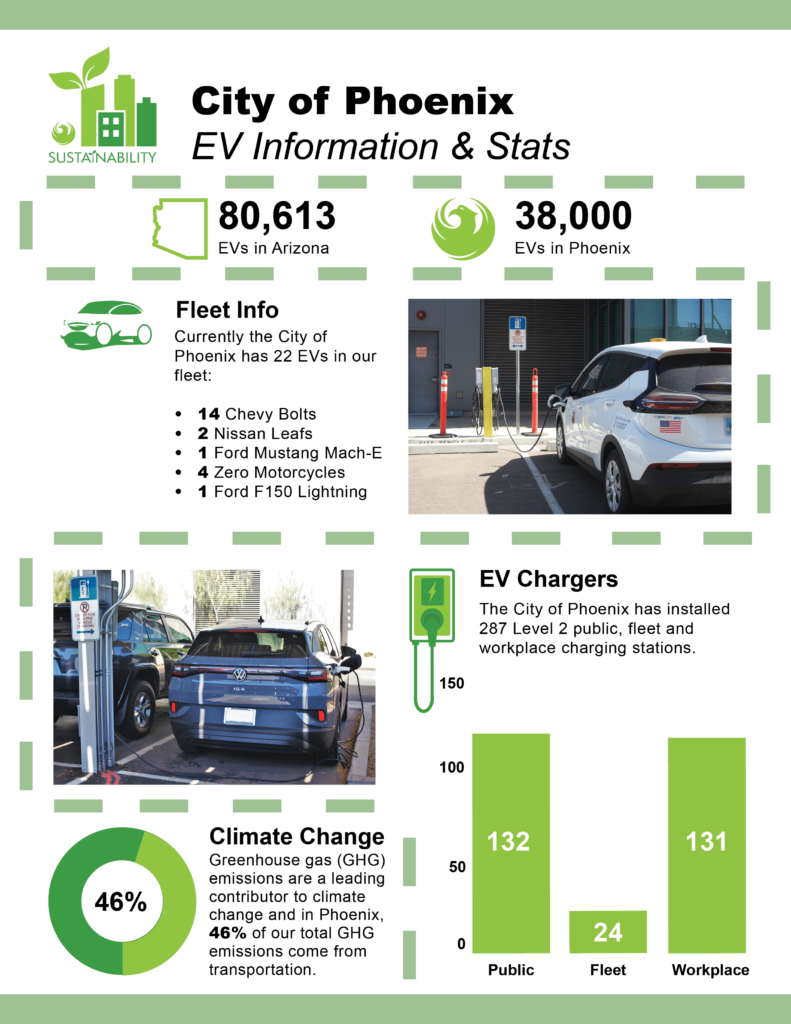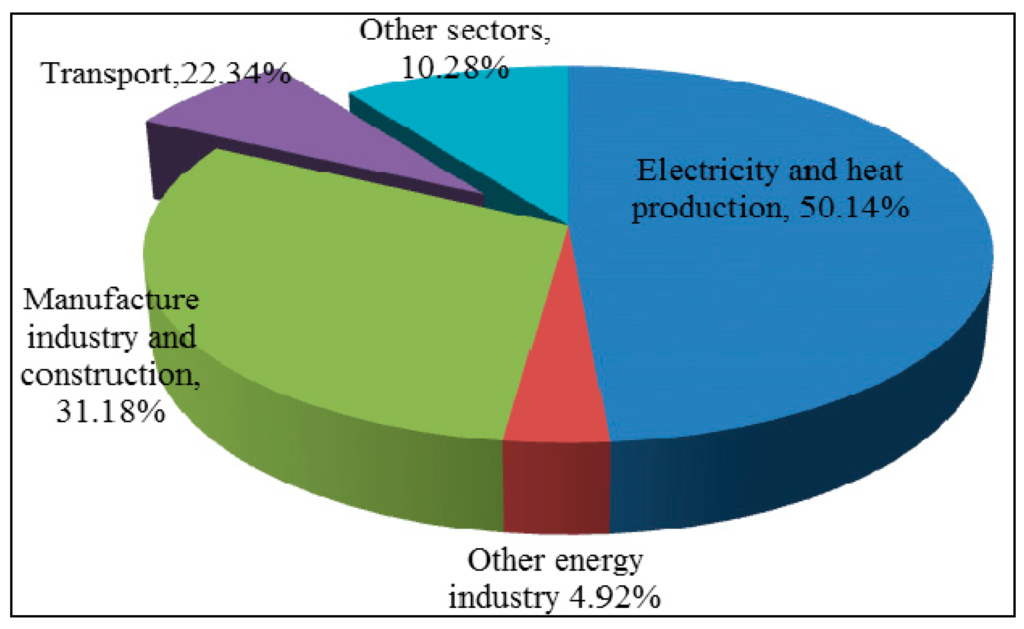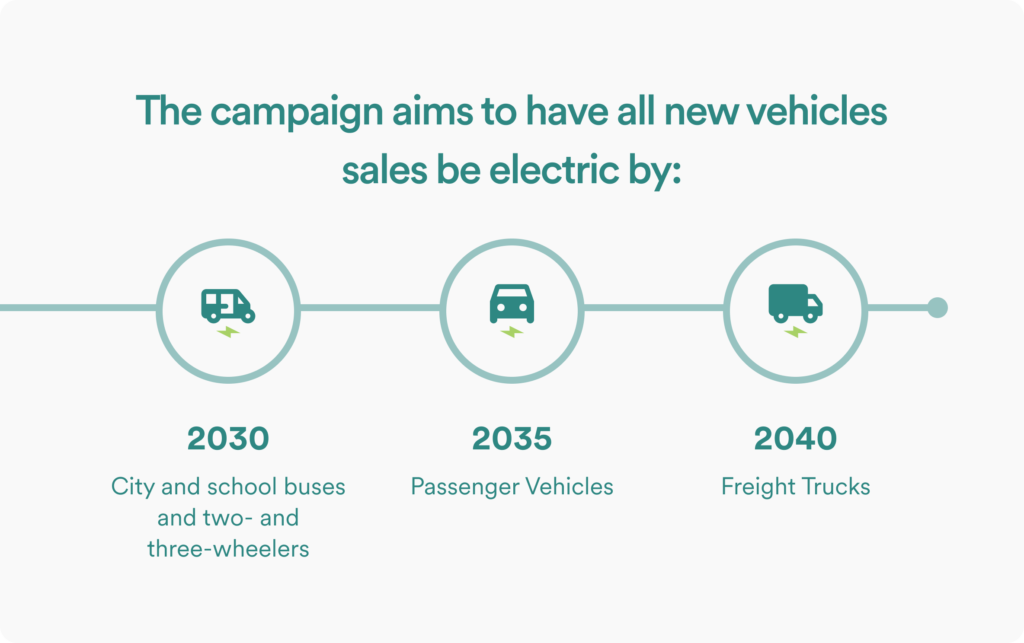Imagine a world where the sounds of honking horns and revving engines are replaced with the gentle hum of electric vehicles silently gliding through the streets. Picture cities with cleaner air, reduced noise pollution, and a healthier environment for all. This is the potential future that awaits us with the widespread adoption of electric vehicles (EVs) in sustainable cities. By embracing EVs, cities can unlock a multitude of benefits, ranging from improved air quality and reduced greenhouse gas emissions to enhanced energy efficiency and increased economic growth. In this article, we will explore the numerous advantages that electric vehicle adoption can bring to our urban landscapes, ultimately paving the way towards a greener and more sustainable future.
Reduced Air Pollution
Decreased emission of greenhouse gases
One of the significant benefits of electric vehicle (EV) adoption in sustainable cities is the decreased emission of greenhouse gases. Unlike conventional vehicles that run on fossil fuels, EVs operate on electricity generated from clean and renewable energy sources. As a result, they produce zero tailpipe emissions, reducing the release of carbon dioxide (CO2) and other harmful greenhouse gases into the atmosphere. This reduction in greenhouse gas emissions plays a crucial role in mitigating climate change and improving the overall environmental health of cities.
Improved air quality
The transition to electric vehicles also leads to improved air quality in sustainable cities. Since EVs produce no exhaust emissions during operation, they do not contribute to the release of pollutants such as nitrogen oxides (NOx) and particulate matter (PM) into the air. These pollutants, which are commonly emitted by combustion engines, have detrimental effects on human health and the environment. By eliminating these emissions, EVs help in minimizing air pollution levels, resulting in cleaner and healthier air for city dwellers to breathe.
Lower levels of noise pollution
Another advantage of electric vehicle adoption in sustainable cities is the lower levels of noise pollution. Unlike traditional vehicles, EVs operate quietly due to the absence of internal combustion engines. The typical noise associated with engine combustion and exhaust systems is significantly reduced, providing a more peaceful and tranquil urban environment. This reduction in noise pollution can have multiple benefits, such as improved quality of life, reduced stress levels, and enhanced overall well-being for residents living in busy urban areas.
Improved Public Health
Decreased respiratory diseases
The adoption of electric vehicles in sustainable cities can contribute to decreased respiratory diseases among the population. Conventional vehicles emit pollutants such as particulate matter and nitrogen oxides, which have been linked to respiratory issues, including asthma, bronchitis, and other respiratory conditions. By replacing these vehicles with EVs, which produce zero tailpipe emissions, the exposure to harmful pollutants is significantly reduced, leading to improved respiratory health for residents.
Reduced risk of cardiovascular diseases
Furthermore, the reduced air pollution resulting from electric vehicle adoption can help in lowering the risk of cardiovascular diseases. Fine particulate matter (PM2.5) and nitrogen oxides (NOx) emitted by combustion engines have been associated with an increased risk of heart attacks, strokes, and other cardiovascular ailments. By minimizing these emissions through the use of EVs, sustainable cities can create a healthier environment, thereby decreasing the chances of cardiovascular diseases and improving the overall well-being of their citizens.
Improved overall well-being
The overall well-being of individuals living in sustainable cities can also be enhanced through the adoption of electric vehicles. Cleaner air quality, reduced noise pollution, and improved respiratory and cardiovascular health contribute to a better quality of life for residents. Additionally, the promotion of sustainable transportation options like EVs encourages physical activity, such as walking or cycling, which further improves overall well-being. By prioritizing the health and well-being of their citizens, sustainable cities create a more livable and enjoyable environment for everyone.

Decreased Dependence on Fossil Fuels
Reduced reliance on oil imports
One of the key benefits of electric vehicle adoption in sustainable cities is the decreased dependence on fossil fuels, particularly oil imports. Traditional vehicles rely heavily on gasoline or diesel fuel, a significant portion of which is imported from other countries, often leading to economic instability and geopolitical concerns. By transitioning to electric vehicles, cities can reduce their reliance on these imported fossil fuels and promote energy independence, ensuring a more secure and sustainable energy future.
Increased energy independence
By embracing electric vehicles, sustainable cities can increase their energy independence. EVs can be powered by renewable energy sources such as solar or wind, which can be locally generated. This shift towards clean and decentralized energy production enables cities to reduce their reliance on centralized fossil fuel power plants. With a diversified energy mix, cities become less vulnerable to price fluctuations and supply disruptions, fostering greater stability and sustainability in their energy systems.
Mitigation of price fluctuations
Electric vehicle adoption helps mitigate price fluctuations associated with conventional vehicles’ reliance on fossil fuels. As oil prices fluctuate due to various economic and geopolitical factors, the cost of gasoline and diesel can significantly impact drivers’ budgets. By transitioning to EVs and utilizing electricity from renewable energy sources, sustainable cities can stabilize transportation costs and reduce the vulnerability of their citizens to fuel price shocks. The more predictable and stable nature of electricity prices makes EVs a cost-effective and reliable alternative for transportation, benefiting both individuals and the economy as a whole.
Lower Greenhouse Gas Emissions
Lower carbon dioxide emissions
The adoption of electric vehicles in sustainable cities contributes to lower carbon dioxide (CO2) emissions. As the transportation sector is a significant source of CO2 emissions, transitioning to EVs helps to reduce the overall carbon footprint of cities. With zero tailpipe emissions during operation, EVs mitigate the release of CO2, which is a primary greenhouse gas responsible for climate change. This reduction in carbon dioxide emissions plays a vital role in addressing global warming and achieving climate goals set forth in international agreements.
Reduction in other harmful pollutants
In addition to reducing carbon dioxide emissions, electric vehicle adoption also leads to a reduction in other harmful pollutants. Combustion engines produce various pollutants, including nitrogen oxides (NOx), sulfur oxides (SOx), volatile organic compounds (VOCs), and particulate matter (PM), all of which have detrimental effects on human health and the environment. By eliminating these emissions through the use of EVs, sustainable cities can significantly improve local air quality and reduce the occurrence of respiratory and other health issues caused by exposure to these harmful pollutants.
Contribution to global climate change efforts
The deployment of electric vehicles in sustainable cities also contributes to global climate change efforts. By reducing carbon dioxide emissions and eliminating other harmful pollutants, cities actively participate in the fight against climate change at a local and global level. The collective adoption of EVs in different cities helps to create a significant impact, demonstrating the viability of sustainable transportation and encouraging other regions to follow suit. With international efforts focused on reducing greenhouse gas emissions and limiting global warming, electric vehicle adoption plays a crucial role in achieving a sustainable and low-carbon future.

Energy Efficiency
Higher energy conversion efficiency
Electric vehicles offer higher energy conversion efficiency compared to conventional internal combustion engine vehicles. While traditional vehicles convert only a fraction of the energy stored in gasoline or diesel into useful work, EVs can convert a higher percentage of the energy from their batteries into forward motion. This increased efficiency helps to reduce energy waste and optimize the use of resources, making electric vehicles a more sustainable mobility solution.
Ability to harness renewable energy sources
Electric vehicle adoption facilitates the harnessing of renewable energy sources for transportation needs. By integrating EV charging infrastructure with renewable energy generation systems such as solar panels or wind turbines, cities can power their electric vehicles with clean and locally produced energy. This ability to tap into renewable energy sources for transportation contributes to the overall sustainability of cities, reduces carbon footprint, and promotes the development of a more resilient and decentralized energy system.
Optimization of energy use through regenerative braking
Another energy efficiency benefit of electric vehicles lies in regenerative braking technology. When an EV decelerates or brakes, the electric motor reverses its operation, acting as a generator to recover and store some of the energy that would otherwise be wasted as heat in conventional braking systems. This process improves overall energy efficiency by recycling kinetic energy and converting it back into electrical energy, which can be stored in the vehicle’s battery and used to power the vehicle later. The utilization of regenerative braking technology in EVs further enhances energy conservation and reduces dependence on external charging sources.
Reduced Traffic Congestion
Decreased number of vehicles on the road
The adoption of electric vehicles in sustainable cities can lead to a decreased number of vehicles on the road. This reduction occurs through various factors, such as car-sharing and ride-hailing services that utilize electric vehicles as their fleet. By providing alternative transportation options and encouraging the use of shared electric vehicles, cities can decrease personal vehicle ownership and the overall number of cars on the road. This reduction in traffic congestion not only improves air quality and reduces noise pollution but also enhances road safety and promotes more efficient transportation systems.
Less time spent in traffic
With reduced traffic congestion resulting from electric vehicle adoption, individuals in sustainable cities can experience less time spent in traffic. The decreased number of vehicles on the road helps to alleviate traffic jams and bottlenecks, leading to smoother traffic flow and reduced travel times. This reduction in time spent commuting improves productivity, enhances the overall quality of life for residents, and encourages a more efficient use of urban infrastructure.
Improved traffic flow
The integration of electric vehicles into sustainable cities contributes to improved traffic flow. By utilizing advanced smart grid technologies and data analysis, cities can optimize the charging infrastructure and manage the demand for electric vehicles. This optimization includes factors such as time-of-use pricing, incentivizing charging during off-peak hours, and dynamically adjusting charging rates based on grid conditions. These measures help in balancing the energy grid and preventing overloads during peak periods, ensuring a reliable and efficient charging experience for electric vehicle owners. Improved traffic flow leads to better utilization of road infrastructure, reduced idling time, and a smoother overall transportation system.

Promotion of Renewable Energy Integration
Increased demand for electricity from renewable sources
Electric vehicle adoption promotes the integration of renewable energy sources into the electricity grid. As the number of EVs increases in sustainable cities, the demand for electricity to power these vehicles grows as well. This increased demand presents an opportunity for cities to invest in and expand their renewable energy generation capacity. By promoting the growth of renewable energy sources such as solar, wind, or geothermal, cities can ensure a cleaner and more sustainable energy mix, further reducing greenhouse gas emissions and dependence on fossil fuels.
Opportunity for smart grid development
The rise of electric vehicles creates an opportunity for the development of smart grid infrastructure in sustainable cities. Smart grids enable more efficient and intelligent management of energy generation, consumption, and storage. By integrating EV charging stations with smart grid systems, cities can optimize the charging and discharging of electric vehicle batteries based on renewable energy availability, overall energy demand, and local grid stability. This integration enables the seamless integration of renewable energy sources, provides grid resiliency, and empowers cities to develop smarter and more sustainable energy systems.
Synergy between electric vehicles and clean energy
The synergy between electric vehicles and clean energy is a significant benefit of their adoption in sustainable cities. As electric vehicles operate on electricity, they provide a means to utilize excess renewable energy generated during off-peak periods or during periods of high renewable energy production. By drawing power from the grid when renewable energy sources are abundant, EVs act as a storage system that can help balance the supply and demand of electricity. This integration between electric vehicles and clean energy not only maximizes the utilization of renewable energy but also facilitates the development of a more resilient and sustainable energy ecosystem within cities.
Job Creation and Economic Growth
Expansion of electric vehicle manufacturing sector
The adoption of electric vehicles in sustainable cities stimulates the growth and expansion of the electric vehicle manufacturing sector. This growth translates into job creation opportunities and economic growth for cities and regions that invest in electric vehicle manufacturing facilities. As demand for electric vehicles increases, manufacturers need to scale their production capacity, leading to the creation of both direct and indirect jobs. From research and development to manufacturing, assembly, and supply chain operations, the electric vehicle industry presents a significant opportunity for job creation and economic development in sustainable cities.
Growth of charging infrastructure industry
The deployment of electric vehicles necessitates the growth and development of charging infrastructure within sustainable cities. As more individuals and businesses switch to electric vehicles, the demand for charging stations increases, creating a market for the installation, operation, and maintenance of charging infrastructure. This growth in the charging infrastructure industry also contributes to job creation and economic growth, providing employment opportunities in construction, electrical work, and associated service sectors. The expansion of the charging infrastructure industry facilitates the widespread adoption of electric vehicles and supports the continued sustainable development of cities.
Creation of skilled and specialized jobs
Electric vehicle adoption in sustainable cities creates opportunities for skilled and specialized jobs. The development and deployment of electric vehicle technology require expertise in areas such as battery manufacturing, electric vehicle design, software development, and electric vehicle charging infrastructure. As cities invest in the transition to electric vehicles, they also invest in training programs and educational initiatives to cultivate a skilled workforce capable of supporting the evolving electric vehicle industry. These specialized job opportunities contribute to equitable economic growth and allow individuals to participate in the cutting-edge sectors of clean transportation and renewable energy.

Expedited Technological Advancements
Accelerated research and development for EV technology
The widespread adoption of electric vehicles in sustainable cities accelerates research and development efforts in EV technology. As the demand for EVs increases, manufacturers and research institutions invest more resources in advancing battery technology, improving charging infrastructure, and enhancing the overall performance and efficiency of electric vehicles. This accelerated progress contributes to technological advancements and innovation in the electric vehicle sector, leading to breakthroughs in range, charging speed, battery life, and affordability. The push for better electric vehicle technology benefits not only the cities adopting EVs but also the global push for sustainable transportation solutions.
Innovation in battery storage and charging systems
The adoption of electric vehicles fosters innovation in battery storage and charging systems. Electric vehicles require efficient and reliable battery systems to store and deliver energy. The continuous improvement and innovation in battery technology have a positive spillover effect on other sectors, such as renewable energy storage or grid-scale energy systems. As cities invest in electric vehicle adoption, research and development efforts focus on optimizing battery performance and advancing charging infrastructure. These advancements benefit not only the electric vehicle industry but also support the development of sustainable energy storage solutions, making clean and renewable energy more accessible and viable.
Advancements in autonomous driving technology
The adoption of electric vehicles contributes to advancements in autonomous driving technology. Electric vehicles are well-suited for autonomous driving due to the inherent electric drivetrain design and the potential for seamless integration with advanced driver assistance systems. As cities embrace electric vehicles, the demand for autonomous driving features increases, pushing research and development in this field. The progress in autonomous technology not only benefits electric vehicle users by providing enhanced safety and convenience but also opens up new possibilities for urban transportation systems, such as autonomous ridesharing or delivery services. The symbiotic relationship between electric vehicle adoption and autonomous driving technology leads to continuous advancements, driving the future of sustainable and intelligent transportation.
Social Equity and Accessibility
Equal access to cleaner transportation options
The adoption of electric vehicles in sustainable cities promotes social equity and equal access to cleaner transportation options. Conventional vehicles tend to be expensive to purchase and maintain, making them less accessible to low-income communities. By providing incentives and support for electric vehicle adoption in these communities, cities can ensure that all residents have access to cleaner and more affordable transportation. Electric vehicles, along with associated charging infrastructure, help bridge the transportation gap, reducing reliance on public transit or inefficient personal vehicles, and empowering individuals from all socioeconomic backgrounds to embrace sustainable mobility.
Reduced transportation costs for low-income communities
The integration of electric vehicles in sustainable cities reduces transportation costs, particularly for low-income communities. EVs have lower operating costs compared to their gasoline or diesel counterparts, mainly due to the relatively lower cost of electricity as a fuel source. By transitioning to electric vehicles, individuals and families in low-income communities can benefit from reduced fueling and maintenance expenses, freeing up more of their budget for other essential needs. The affordability of electric vehicles and the potential savings on transportation costs contribute to a more equitable and financially inclusive urban environment.
Improved mobility for individuals with disabilities
Electric vehicle adoption improves mobility options for individuals with disabilities in sustainable cities. Electric vehicles offer quieter operation, smoother acceleration, and advanced driving assistance features that can accommodate various mobility impairments. The availability of accessible electric vehicles, combined with infrastructure enhancements such as disabled-friendly EV charging stations and designated parking spaces, ensures that individuals with disabilities have equal access to clean and sustainable transportation. This inclusivity fosters greater independence, freedom, and improved overall quality of life for individuals with disabilities within sustainable cities.
In conclusion, the adoption of electric vehicles in sustainable cities offers a wide range of benefits that encompass environmental, health, economic, and social aspects. From reducing air pollution and greenhouse gas emissions to improving public health and creating job opportunities, electric vehicle adoption contributes to the creation of livable and sustainable urban environments. With advancements in technology, increased investment in renewable energy integration, and a focus on social equity, electric vehicles play a vital role in the transition to greener and more sustainable transportation systems. As more cities embrace electric vehicle adoption and prioritize sustainable mobility, they take a significant step towards building a cleaner, healthier, and more accessible future for all.


